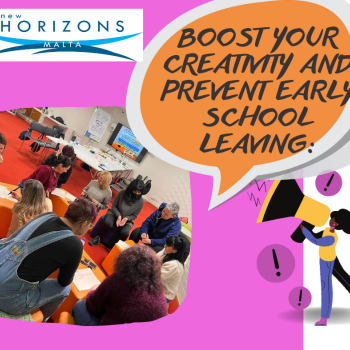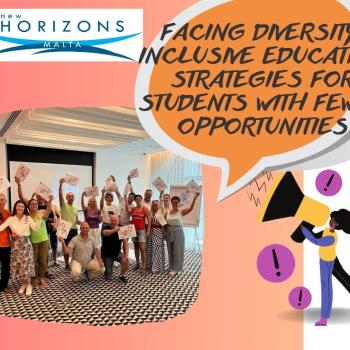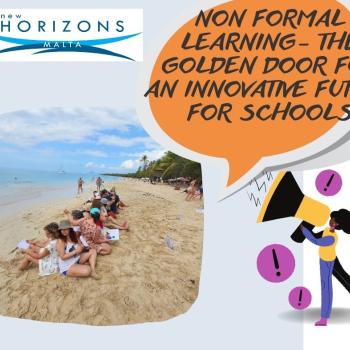
WELLBEING AND RESILIENCE TRAINING FOR TEACHERS
This course will help you recognize the warning signs of poor wellbeing in yourself and others at your school and take action to improve it using multiple methods.
8 training days format but at your request, the course can be structured for a shorter format of 7,6, or 5 days
Description
The well-being is associated with: self-perceived health, longevity, healthy behaviors, mental and physical illness, social connectedness, productivity, factors in the physical and social environment. Teacher wellbeing is associated with higher rates of teacher efficiency. The teacher wellbeing as professionals it focuses on the spiritual, physical, mental and social wellness and represents an individual and collective responsibility.
- Introduction to the training course, syllabus, methodology, learning outcomes;
- Soft skills vs Emotional Intelligence (EQ). Why is emotional intelligence important in soft skills? What are the soft skills that fall to EQ? The importance of EQ in the workplace.. Assertiveness in the Workplace. Role play. Games, methods and tools for improving communication and relationship.
- Personal values; 5 Why technique; The Theory of Basic Human values of Shalom H. Schwartz; Self-motivation for achievement; Self-awareness and self-esteem; The power of emotions; Emotional self-awareness.
- Stress management in school; ''To Do List'' - 5 Smarter Ways to Organize Yourself to reduce the stress; How to support students to manage stressful situations; What is creativity? Ways Constructive thinking.
- Daniel Goleman theory of emotional intelligence. Goleman’s Key Components: Self-Awareness; Motivation; Empathy; Social Skills; Self-Regulation. Practical work: implementing a relaxation and visualization session and practicing breathing and self-awareness techniques. Strategies to empower teachers to help bring the students to a place of connection and safety
- Differentiated instruction that increases learners’ engagement; Intrinsec Motivation; How to we build intrinsic motivation? Motivation tools for learners.
- Approaches to conflict: Manage a conflictual situation using one of the strategy to manage conflict;
- Measures concentrate on student; GROW Model - method for goal setting and problem solving Dissemination and valorisation activities planning.
Learning objectives
By the end of the course, each participant should be able to:
-learn more about health and wellbeing and how important is at work
-manage the daily stresses in their life and in teaching
-learn how to develop intrinsic motivation in order to be physically active for physical health and mental wellbeing
-understand the actions and the different techniques needed to provide wellbeing
-explore different types of mindset and how to influence them for more positive effects.
-improve with different techniques to relax and the benefits of rest and recovery from the stresses of everyday life
-learn strength-oriented guiding, teaching and strength pedagogy
-understand the positive power of team building activities and feel more confident and ready to re-use and adjust the practiced exercises
-learn strategies that provide students with a safe, warm, stress-free environment at school
-learn how to provide care, compassion and empathy among learners
-empower teachers with the tools to help bring the students to a place of connection and safety
Methodology & assessment
Certification details
At the end of the course, each participant will be awarded with the Europass Mobility Certificate, together with a descriptive certificate of attendance ( on the certificate will be specified the title of the course, name of the participant project, national reference number, numbers of hours, course dates and location). after participants enrollment, we provide also the learning agreement and the interinstitutional agreement. PREPARATION AND FOLLOW UP BEFORE:Every participant will have to fill a questionnaire which helps the trainers to customize the course to better fit their needs. Attendants will get instructions and material which will help them to be prepared for the courses needs. AFTER: The participants will get material which includes information about all the areas covered at the course, lesson plans , all the produced outcomes of the course, useful links and more. ON THE LAST DAY OF THE COURSE THE PARTICIPANTS WILL HAVE THE OPPORTUNITY TO CREATE A DRAFT OF FUTURE ERAMUS SMALL SCALE PROJECT AND DESIGN SUPPORT WILL BE GIVEN
Additional information
-
Language:English
-
Target audience ISCED:Early childhood education (ISCED 0)Lower secondary education (ISCED 2)Upper secondary education (ISCED 3)
-
Target audience type:TeacherHead Teacher / PrincipalNot-for-profit / NGO staff
-
Learning time:25 hours or more
Upcoming sessions
Past sessions
More courses by this organiser

BOOST YOUR CREATIVITY AND PREVENT EARLY SCHOOL LEAVING: STEPS FOR INTEGRATION AND INTERCULTURAL EDUCATION

Facing Diversity: Inclusive education strategies for students with fewer opportunities


